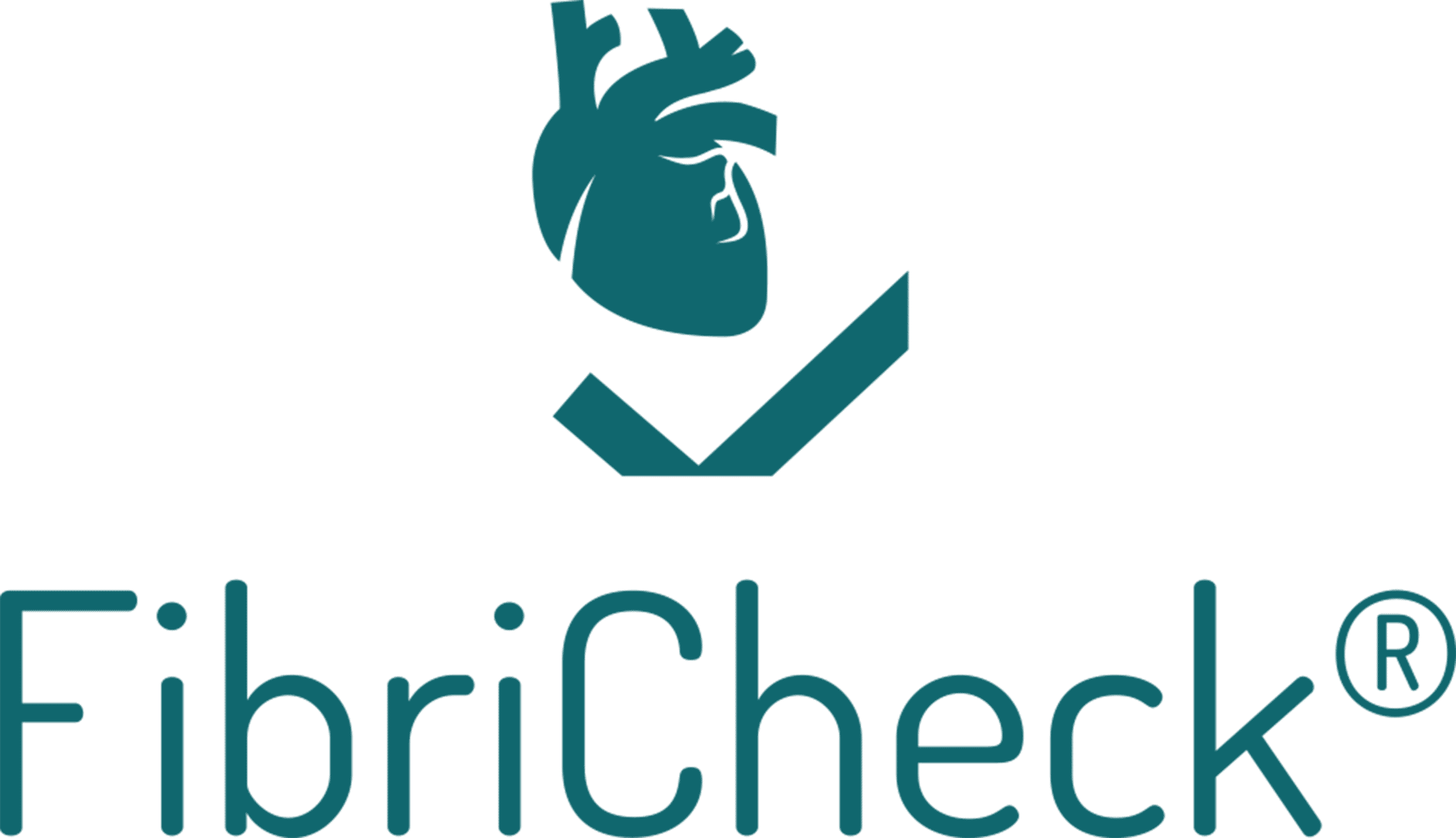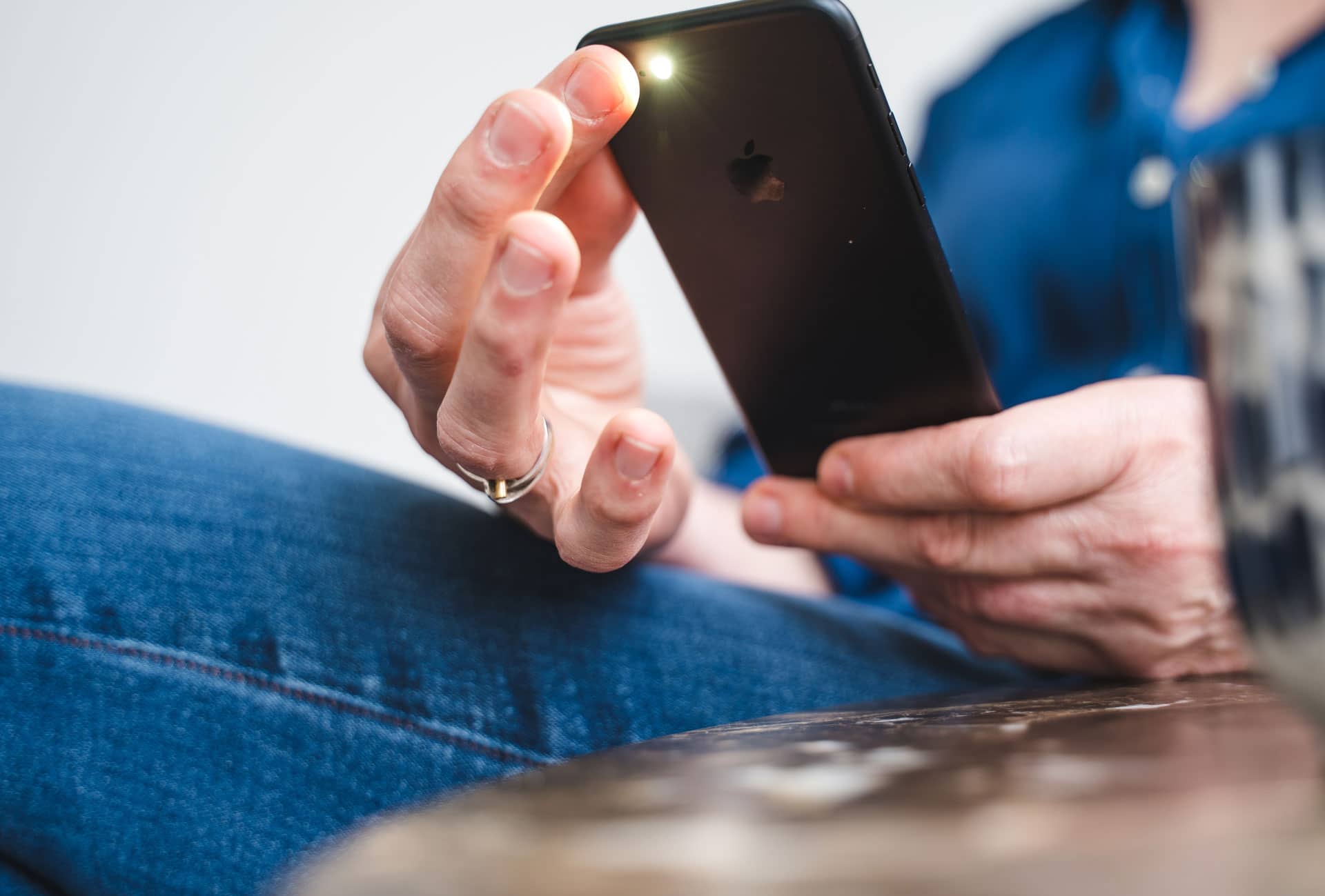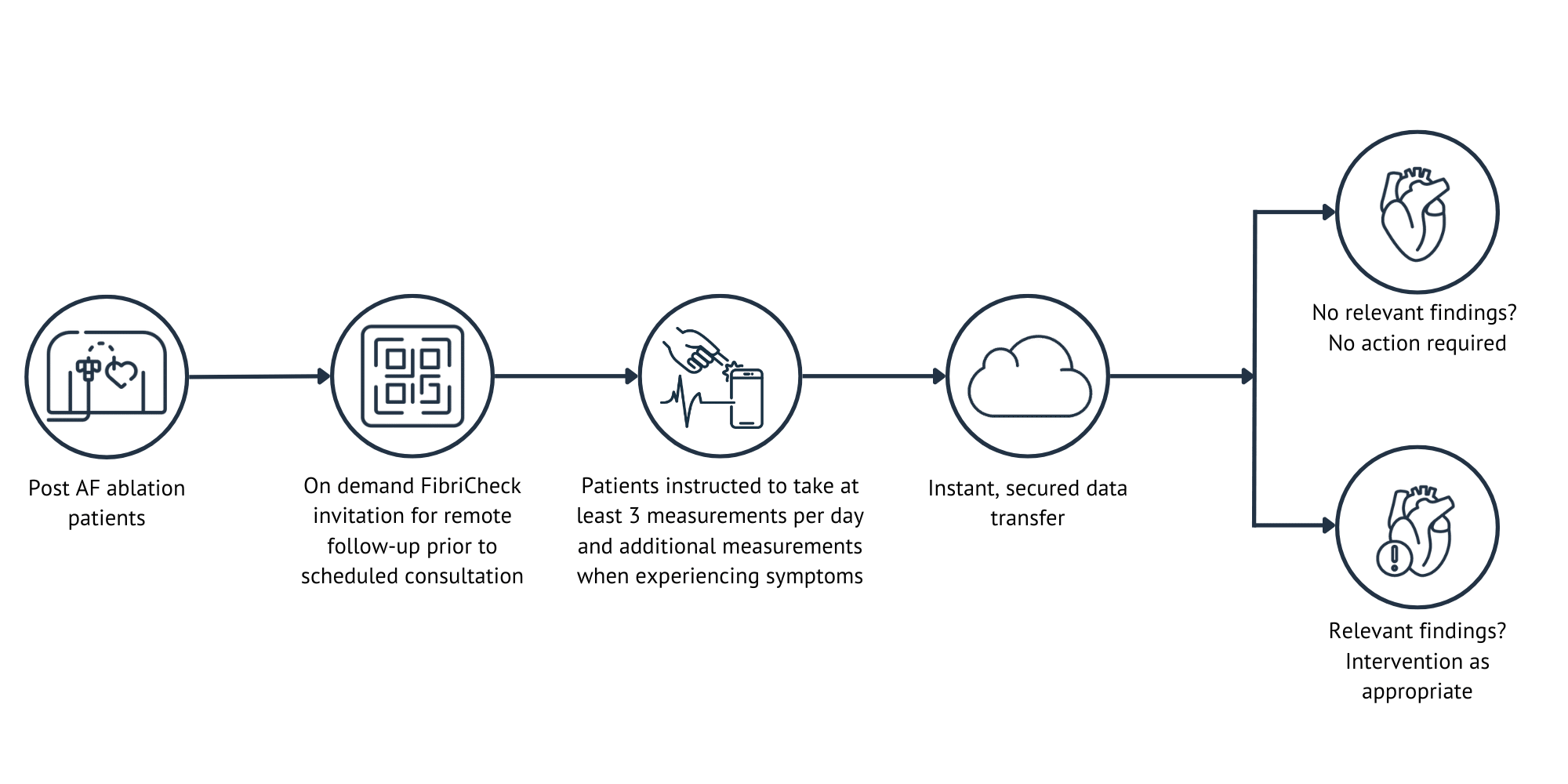
Key benefits
FibriCheck-enabled, digital pathway effectively replacing Holters and 12-lead ECG examinations
Remote insights into heart rate, rhythm, and symptoms efficiently detected AF recurrence in 1 in 4 onboarded patients
Estimated net savings for 500 patients: £64,762 and 250 outpatient clinic hours
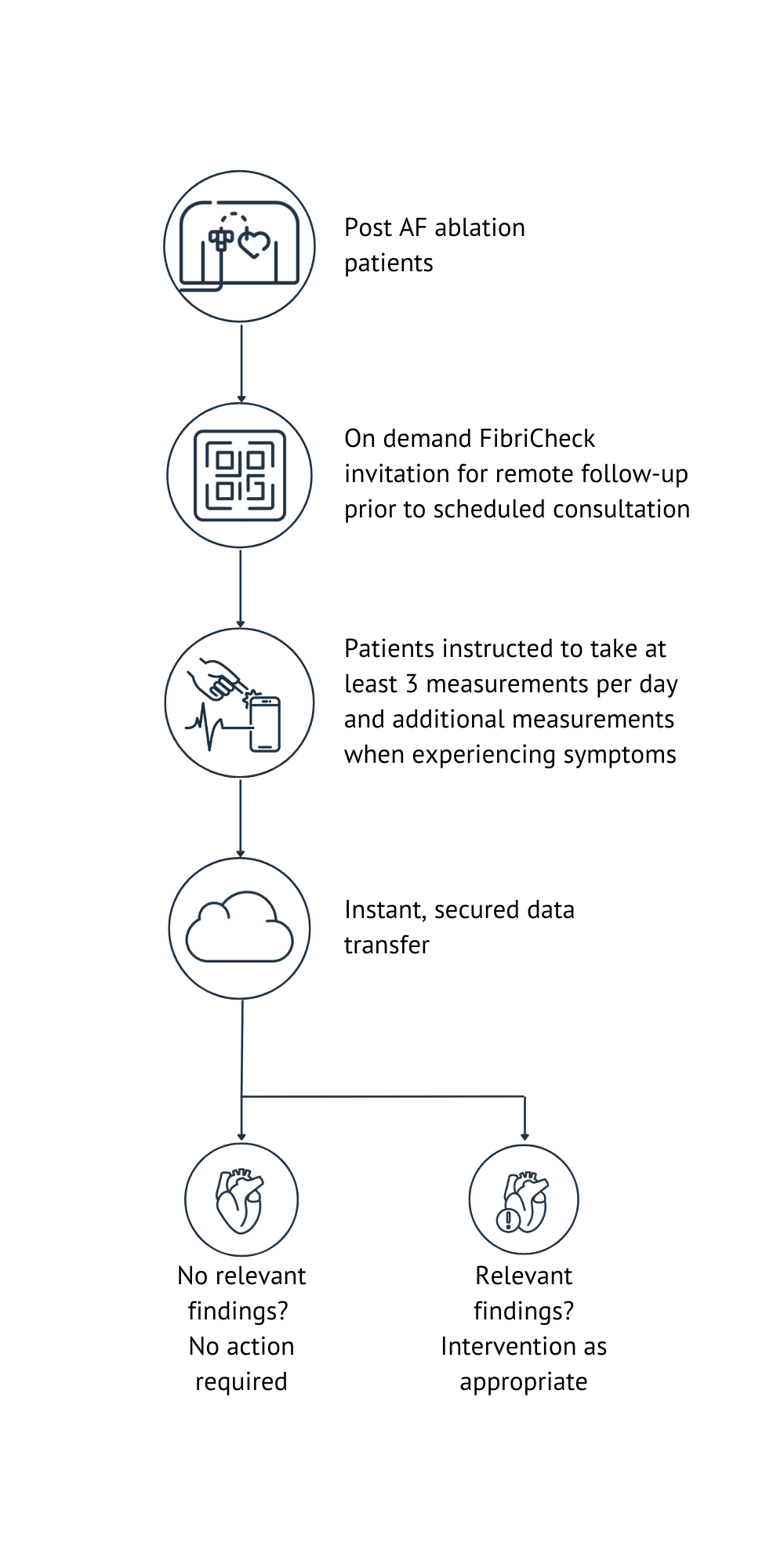
Key benefits
FibriCheck-enabled, digital pathway effectively replacing Holters and 12-lead ECG examinations
Remote insights into heart rate, rhythm, and symptoms efficiently detected AF recurrence in 1 in 4 onboarded patients
Estimated net savings for 500 patients: £64,762 and 250 outpatient clinic hours
How does it work?
At the Essex Cardiothoracic Centre, patients were given seven-day prescriptions to FibriCheck before their 3 and 12-month appointments following an ablation procedure to treat AF. The leading arrhythmia nurse received the summary of the measurements prior to the in-person appointment. FibriCheck enabled informed decision making to manage the patients and decide on potential next steps in care.
Out of the 147 patients who participated up until now, FibriCheck detected AF recurrence in 39 (26.5%) patients which indicates the success rate of the ablation treatment. Thanks to the use of FibriCheck, the use of 500 ECGs and 187 seven-day Holters per 500 patients was avoided, which translates to an estimated net savings of £64,762 and 250 outpatient clinic hours.
This project was presented at the Heart Rhythm Society experience (HRX) by lead arrhythmia nurse of the Essex Cardiothoracic Centre Sharon Toora, and was selected as one of the top 5 abstract submissions. The Essex Cardiothoracic Centre team has also won a global cardiovascular award in the digital innovation category!
In collaboration with

Related resources
Global recognition for a digitally-enabled pathway
“We are absolutely thrilled to have won the Digital Innovation award. It’s a reflection of the outstanding work by the team and the real difference that FibriCheck has made in improving the quality of care for our patients.”
“This is really going to benefit patients as they won’t have to make the journey into the hospital to get their heart rate results; it’s all done in the comfort of their own home. If there are any concerns with the results, we speak to the patient over the phone, and this avoids face-to-face check-ups.”
Sharon Toora, Lead Arrhythmia Nurse Specialist at Mid and South Essex NHS Foundation Trust

Contact us today
And learn how we can enhance your healthcare outcomes
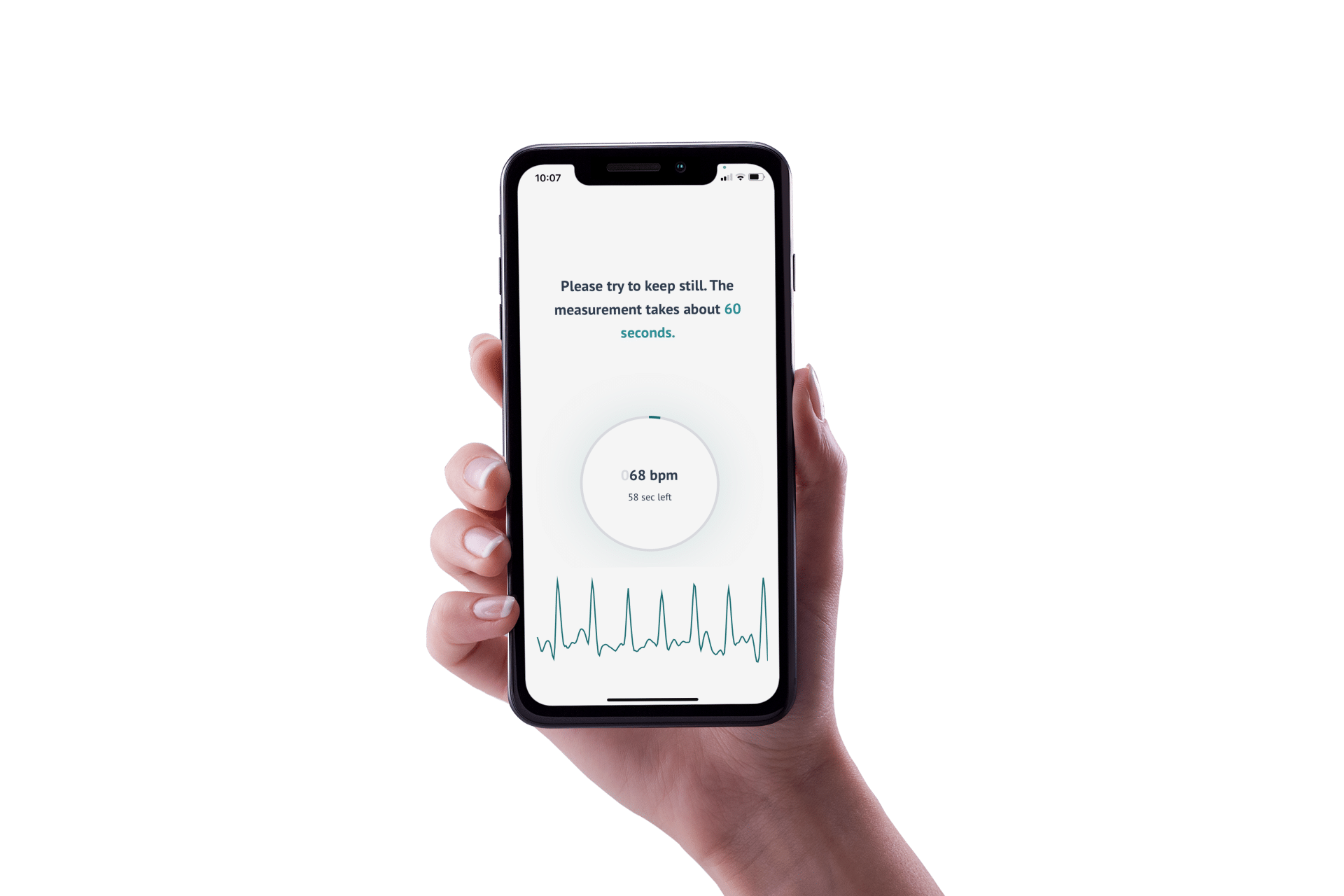
Other implementations
Post Cardioversion, Heart and Chest Hospital Liverpool
Remote PPG monitoring is highly effective in avoiding unnecessary patient re-attendance following DCCV, and provides significant cost, time, and environmental…
Post stroke monitoring, Barking, Havering and Redbridge University Hospitals
Enhanced care results Reduced waiting times for Holters Improved detection yield in cryptogenic stroke patients
Post ablation, Graz University
PPG-data lead to clinical interventions in 24% of patients Adjusting medications based on results Active patient involvement
